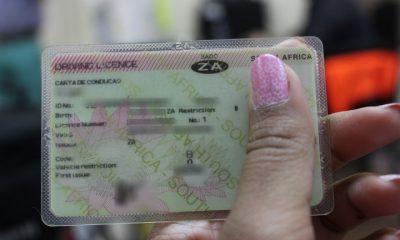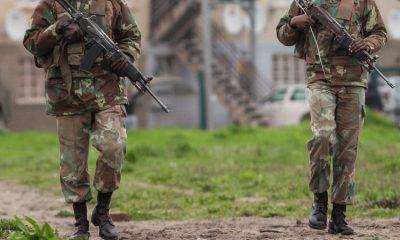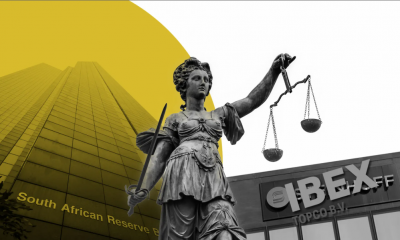411
Government Accused of Double Standards in Illegal Mining Crackdown Amid Billionaire Mine Scandal

South Africa’s government is facing mounting criticism over its handling of illegal mining, with activists accusing it of applying double standards by shielding well-connected elites while cracking down harshly on impoverished miners. The controversy erupted after a R700 million gemstone export attempt, linked to a mine partially owned by a billionaire businessman, was intercepted by authorities.
The Mining Affected Communities United in Action (Macua) has condemned the government’s alleged hypocrisy, claiming that illegal mining is not limited to so-called “zama zamas” (informal miners) but extends to politically connected individuals who have allegedly looted billions from the country’s mineral wealth.
A Billionaire’s Mine Under Scrutiny
The scandal stems from a September 2024 seizure by the South African Revenue Service (Sars), following whistle-blower tips about allegedly illegally mined gemstones being exported. According to Macua, the mine implicated in the scandal is partially owned by a billionaire businessman, raising questions about the government’s willingness to hold powerful figures accountable.
“Despite clear evidence, no raids, mass arrests, or ‘smoke them out’ operations have been launched against those involved,” Macua stated. The organization criticized the police and the Department of Mineral and Petroleum Resources (DMPR) for failing to act against the illegal mining operation, contrasting this inaction with the harsh measures often taken against impoverished miners.
Stilfontein Tragedy: A Call for Justice
Macua also highlighted the tragic deaths of more than 89 miners in Stilfontein, North West, where authorities cut off access to food, water, and medical aid. The organization accused the government of neglecting its duty to protect lives while targeting vulnerable communities. “Illegal mining is not just the domain of zama zamas but extends to politically shielded elites who have looted billions from South Africa’s mineral wealth,” Macua asserted.
In February 2025, Macua formally requested that the Portfolio Committee on Mineral and Petroleum Resources (PCMPR) launch an urgent inquiry into the government’s role in the Stilfontein deaths. However, the request was dismissed, with illegal miners instead being labeled as criminals. This response has further fueled accusations of bias and injustice.
Calls for Accountability and Reform
Macua has vowed to continue mobilizing mining-affected communities to hold the government accountable. “If the state is truly committed to stopping illegal mining, it must start at the top. Not with bullets and starvation for the poor,” the organization declared.
The scandal has reignited debates about the fairness and effectiveness of South Africa’s approach to illegal mining. Critics argue that the government’s focus on impoverished miners while allegedly turning a blind eye to elite involvement undermines public trust and perpetuates inequality.
A Broader Crisis in the Mining Sector
The allegations come amid broader challenges in South Africa’s mining sector, including declining investment, regulatory uncertainty, and widespread illegal mining activities. The government has repeatedly pledged to address these issues, but critics say progress has been slow and uneven.
As the controversy unfolds, pressure is mounting on the government to demonstrate its commitment to justice and accountability. For now, the R700 million gemstone scandal serves as a stark reminder of the deep-seated issues plaguing South Africa’s mining industry—and the urgent need for reform.
Follow Joburg ETC on Facebook, Twitter , TikTok and Instagram
For more News in Johannesburg, visit joburgetc.com



























